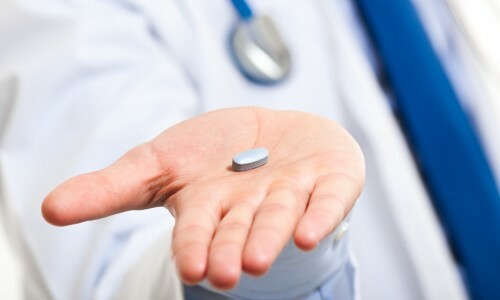Usually, after the operation to remove the thyroid gland, patients acquire a serious diagnosis, known as postoperative hypothyroidism. Due to the fact that the level of production of hormones produced by the thyroid gland decreases, the symptoms of hypothyroidism may appear. The reaction of the body to this disease can manifest itself on the part of various organs, as a result of which surgical intervention, that is, removal of the affected organ, can follow.

Abbreviation ICD-10 is used to refer to the international classification of diseases, in order to ensure an equal approach to the treatment of a variety of health problems. Any problems with the thyroid gland have their own code on the ICD.Postoperative hypothyroidism has code E 89.0 for ICD-10, since it is a disease that arose after medical intervention.
Increased risk groups among
patients. If you look at the research of specialists, you can come to the conclusion that the manifestation of symptoms arises after operations mainly in women, and the older the age, the more likely the rapid development of the disease. Most at risk are:
- all those who suffer from diabetes mellitus;
- those who have kidney failure;
- patients suffering from anemia and goiter.
Before the attending physician decides to remove the affected organ, he will prescribe the patient to pass the course of diagnosis, through which you can get a complete picture of the condition of the body, as well as its tissues. The cause of removal of the thyroid gland can be any disease that interferes with the process of ingestion or pressure on the internal organs of the neck.
Symptoms of

The characteristic signs of the disease are manifold and increase with the progression of postoperative hypothyroidism. Symptoms after removal that are typical of post-operative hypothyroidism of the thyroid gland may be as follows:
- Rapid weight gain and lower body temperature. This entails various problems with the heart, as well as with the vessels.
- On the face, especially in the eyes, lips or tongue, there may be severe swelling. The reason for this is the retention of fluid inside the cells and between them.
- There are disorders of hearing, speech, sight. The taste receptors may not react as sharply as before.
- You can observe the reaction from the nervous system, which is expressed in lack of strength, slowness and bad mood.
- The reaction to hypothyroidism is also manifested from the heart, as a result of which disturbance of the heart rhythm, pressure inside the arteries and very frequent organ contractions can be observed.
- The changes also affect the digestive system. In particular, there is an increase in the size of the liver and spleen. The appetite decreases, flatulence is possible. There may be problems with the stool.
- Anemia and poor blood clotting in the body.
- Violation of the menstrual period.
- The volume of the lungs decreases due to apnea, which results in frequent respiratory and lung diseases.
Diagnosis and treatment of
Although almost everyone after surgery is prone to post-operative hypothyroidism, thyroid gland and this is indeed a serious disease, treatment is still possible. Here, to the aid, both doctors and patients receive modern technologies that help to accurately establish the diagnosis so that any errors can be minimized. Postoperative hypothyroidism of the thyroid gland, unfortunately - is a lifelong disease for the person who has undergone surgery, however, a correctly established diagnosis, a responsible approach of the doctor to prescribing and carrying out therapy, as well as the right way of life, will help to cope with the patient with problems.

Much depends on the patient's behavior, it is important for him to recognize that the medications prescribed by the doctor now completely influence his health and control the disease.
An effective method that doctors use to combat post-operative hypothyroidism is to substitute therapy with similar hormones produced by the thyroid gland. The drug, known as L-thyroxine, almost does not differ from a hormone that the human body produces independently.
Advantages of treatment with hormonal drugs
Naturally, it is important for patients to understand the importance of taking medications( thyroid hormone substitutes) throughout the rest of their lives.
In case of a disease with postoperative hypothyroidism, treatment is reduced only to replacement therapy with thyroid hormone analogues. The effect of thyroxine contributes to significant improvements in the body, and has several advantages:
- The thyroid gland is completely restored.
- The dose of the drug prescribed by a doctor varies only in two cases: as a result of weight gain, or pregnancy.
- The cost of the drug is available to every patient.
- A transplanted operation can live a "full" life without feeling unwell.
The impact on the body is very fast, literally in the first two days you can feel relief. Even if suddenly the hormone was not received on time, the condition will not begin to worsen, because being still 7 days in plasma, the hormone continues its action.
After applying the drug for two or three months, passing the analysis on the hormone, you can make sure that its level is completely sufficient for the proper functioning and functioning of the body.



